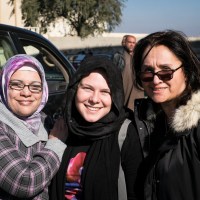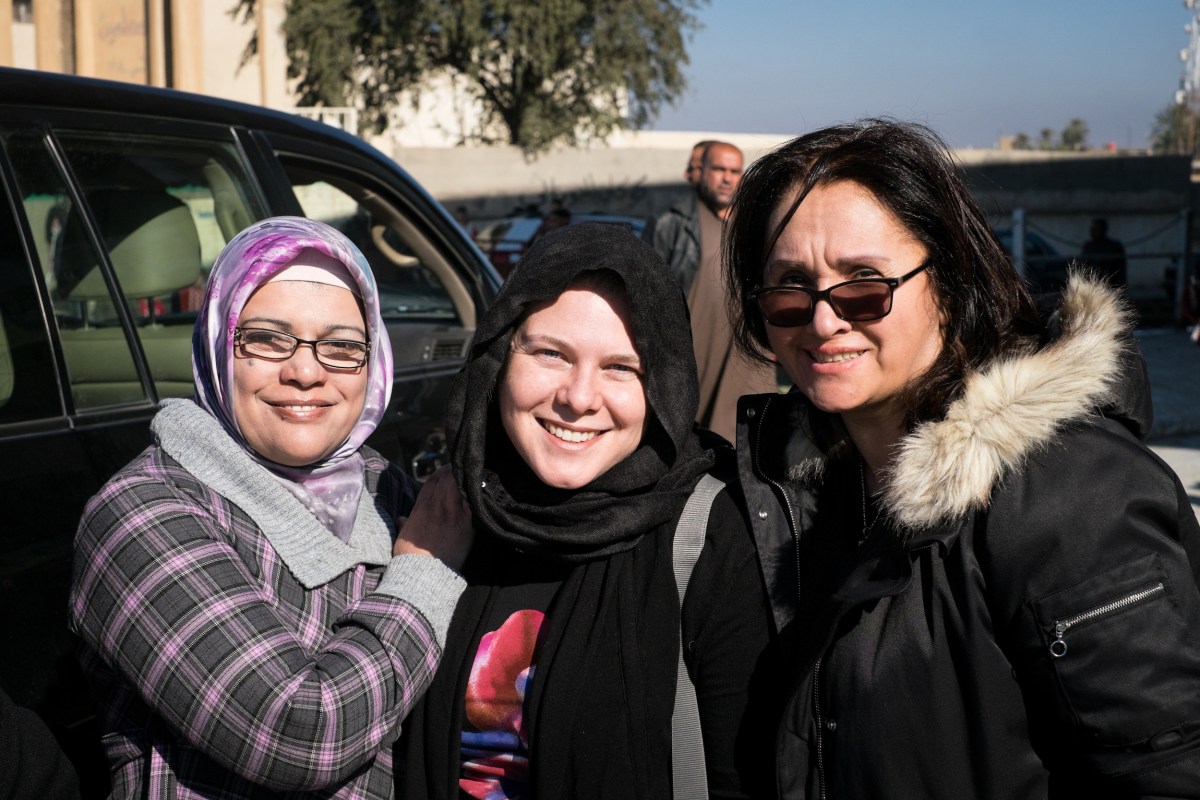“What if we know one of these widow’s husbands fought with ISIS?”
“Of course we’re going to help them.”
“Why would we help them?”
“Because we’re going to love first. It’s important to show her that she’s important to us.”
Jessica Courtney, one of our founders, met up with two local partners in Baghdad to discuss our program that provides small business grants to war widows in southern Iraq. The three women—one Christian, one Shia Muslim, and one Sunni Muslim—each brought a unique set of beliefs to the table. They brought their own experiences, biases, and dreams for hurting families in Iraq.
Love—it isn’t a theoretical practice. And it doesn’t come without risk.
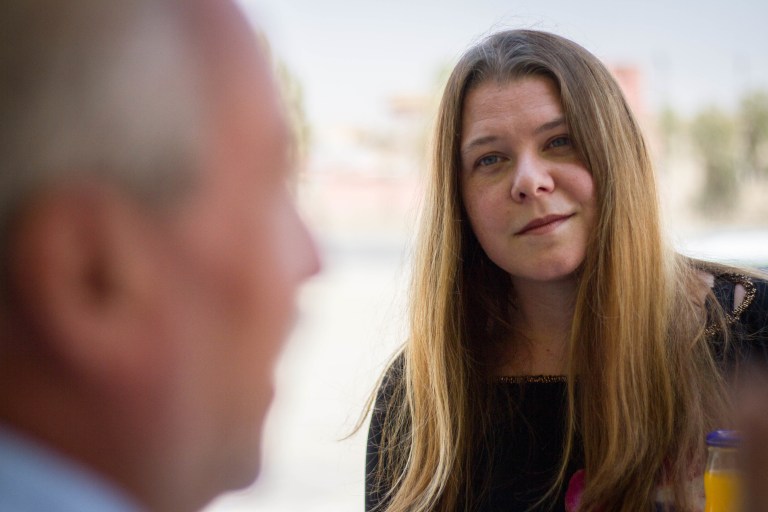
One woman in the group initially hesitated to support any widows of ISIS fighters for fear it could be seen as a tacit endorsement of ISIS. It’s a very real concern, and one that we continue to face as ISIS loses territory and we work in more newly-liberated areas.
Our staff had already wrestled through many of the hard questions when we first decided to respond to the horrific actions of ISIS and the fallout from the war to remove them from cities across Iraq. As a coalition of people committed to loving preemptively, we decided from the beginning that we will be the kind of people who are “planning for peace while so many prepared for perpetual war.” We decided ahead of time that we would sow seeds of love at every opportunity.
We had already decided that everybody’s kids eat.
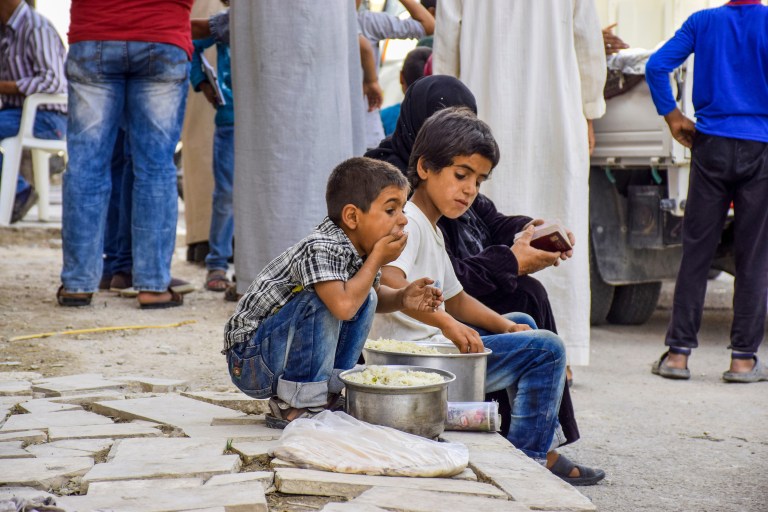
Becoming a widow—losing your husband and the father of your children—is devastating. In cultures like Iraq’s, the devastation is compounded by additional layers of complexity that make life as a widow even more difficult.
In the earliest months of widowhood, a woman must stay at home with her immediate family.  It is an age-old practice intended to protect her safety, reputation, and virtue in a male-dominated world. Later, a widow can interact a little more widely, but if she has children to look after, her job prospects are slim. There are few socially acceptable options for a widow, especially in rural areas, to find work.
It is an age-old practice intended to protect her safety, reputation, and virtue in a male-dominated world. Later, a widow can interact a little more widely, but if she has children to look after, her job prospects are slim. There are few socially acceptable options for a widow, especially in rural areas, to find work.
All this means that when many women lose their husbands, they not only lose their life companions, protectors, and the father of their children… they also lose their ability to keep a roof over their family’s head and food in their children’s bellies.
Widows are some of the most vulnerable people in any Iraqi community.
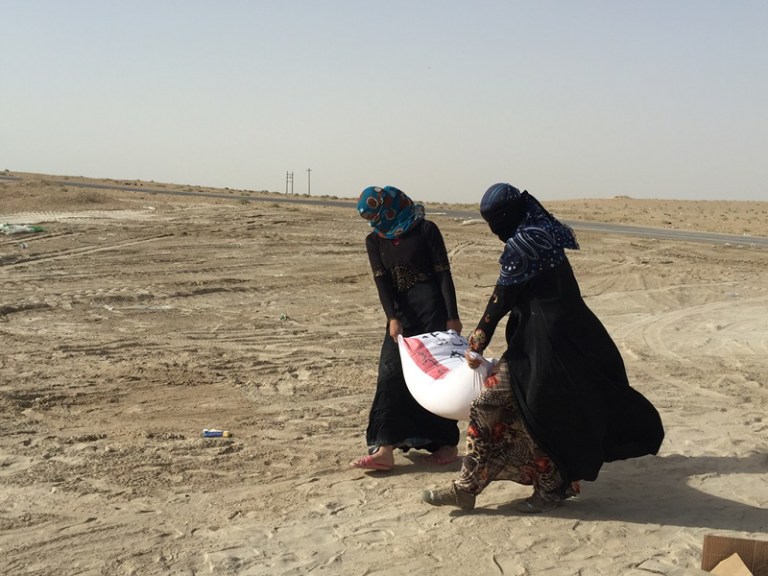
“It’s important to show her that she’s important to us…”
The three women continued to discuss this opportunity to serve war widows in a place that is complicated, to say the least. As each one spoke to the others through their own way of seeing the world—through lenses created by their own faiths, experiences, biases, and dreams—they came to realize that all of them believed at their core that love was the best response.
“What can I say? I’m becoming a Christian.”
“What can I say? I’m becoming a Shia.”
No one at the table was converting to a different faith. Rather, they discovered that each believed love to be central to their beliefs, and in that love they found common ground. They made the conscious choice to love one another and take care of each other—including the widows and children of slain ISIS fighters.
And in doing so, these three women found a place to stand together.
“What if we know one of these widow’s husbands fought with ISIS?”
“Of course we’re going to help them.”

